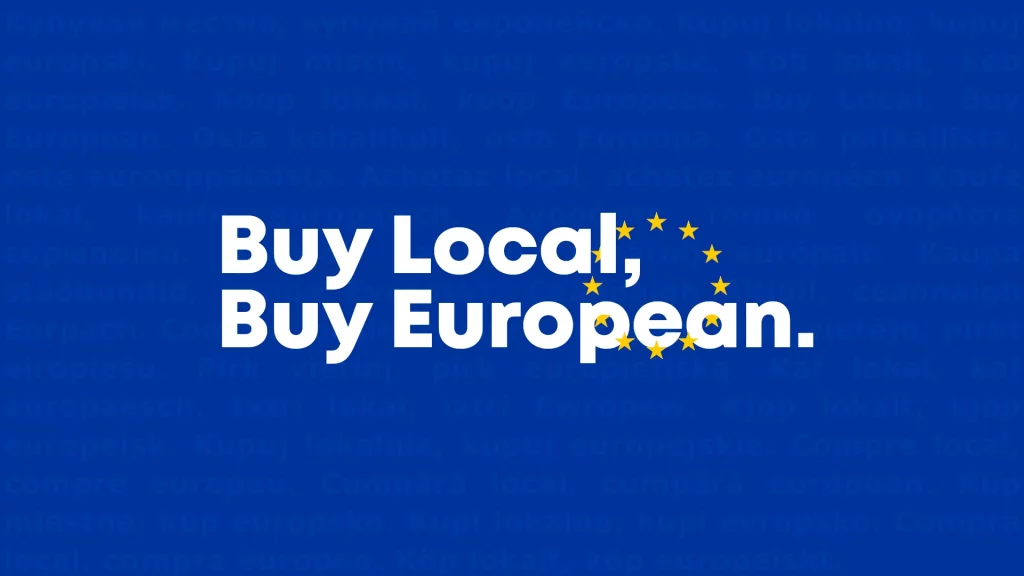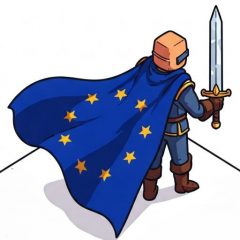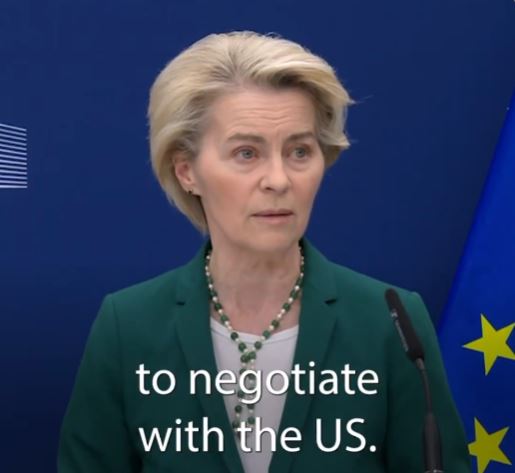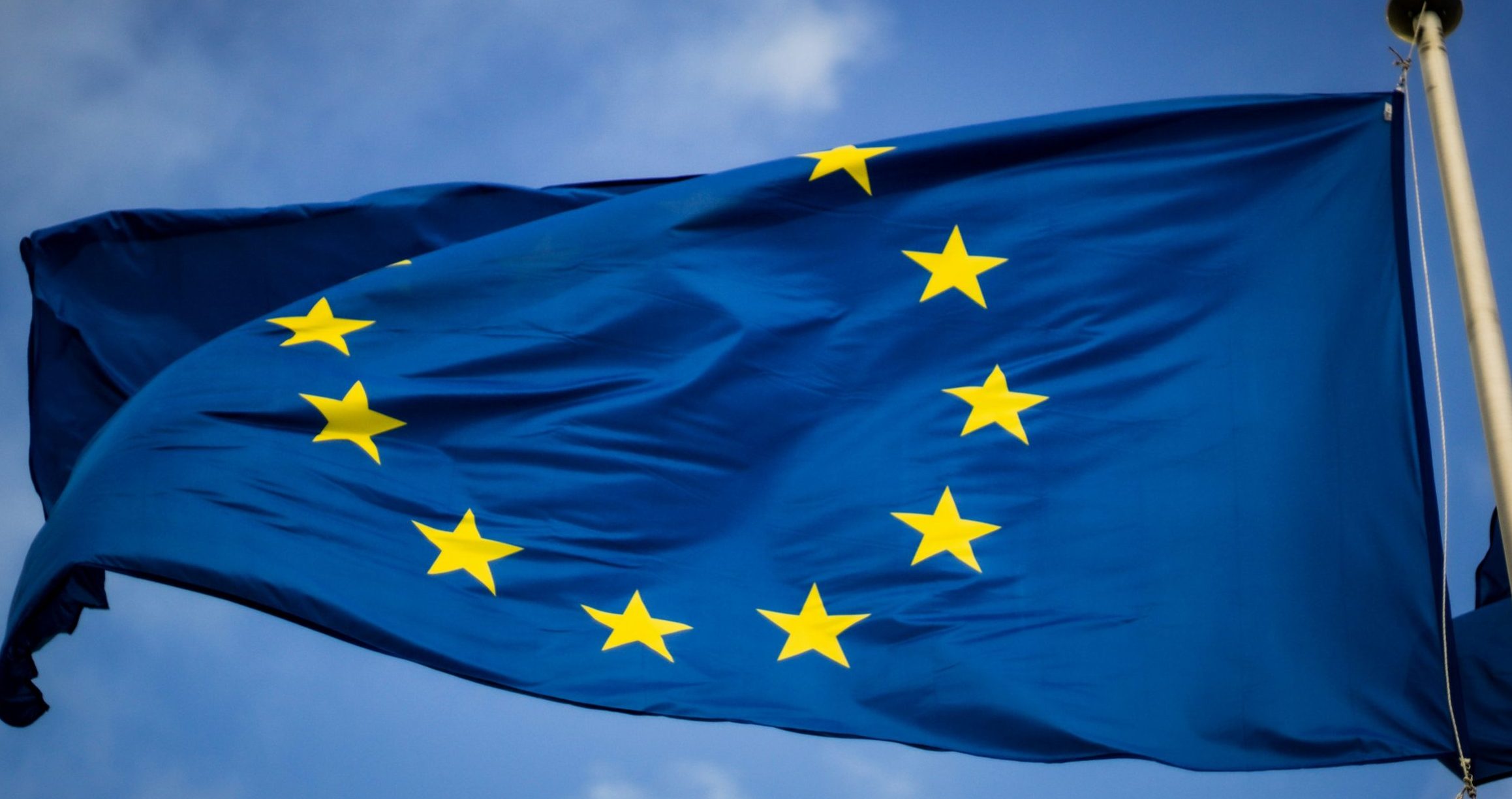The resurgence of protectionist trade policies under former President Donald Trump—particularly the imposition of tariffs on European steel, aluminum, and potentially a broad range of goods—has sent ripples through the global economy. While these measures pose immediate challenges, they also present a pivotal opportunity for Europe to fortify its economic sovereignty, stimulate internal demand, and foster a culture that values products made within the European Union (EU).
The Immediate Impact: Economic Strain and Strategic Reassessment
Trump’s tariff strategy has already begun to affect global markets. Analysts predict a significant downturn, with Moody’s Mark Zandi estimating over a 50% chance of a global recession in 2025, attributing much of this risk to escalating trade tensions. Sectors like manufacturing and agriculture are particularly vulnerable, potentially leading to widespread job losses and economic contraction.
Europe, heavily reliant on exports to the US—totalling €502.3 billion in 2023—is especially exposed. Key industries such as automotive, machinery, and chemicals, which constitute nearly 90% of EU exports to the US, face significant threats. Germany, Italy, and Ireland, as leading exporters, could experience substantial economic setbacks.
European Leadership: A Unified and Strategic Response
In response to these challenges, European leaders have emphasized unity and strategic action. French President Emmanuel Macron has warned that the EU must enhance its competitiveness to avoid obsolescence, advocating for significant investments and streamlined regulations . He, along with German Chancellor Olaf Scholz, has underscored the necessity for Europe to stand firm against external economic pressures.
European Commission President Ursula von der Leyen has expressed deep regret over the US tariffs, labelling them as detrimental to both businesses and consumers. She has announced proportionate countermeasures, including €26 billion in tariffs on US goods, while remaining open to negotiations to resolve the trade disputes.
Europe is ready to negotiate with the US.
— Ursula von der Leyen (@vonderleyen) April 7, 2025
We have offered zero-for-zero tariffs for industrial goods.
Because we're always ready for a good deal.
But we’re also prepared to respond with countermeasures.
And protect ourselves against indirect effects through trade diversion. pic.twitter.com/hpZ77TXH4B
Seizing the Opportunity: Strengthening ‘Made in EU’ and Consumer Awareness
While the immediate effects of US tariffs are challenging, they also serve as a catalyst for Europe to reinforce its economic foundations. This situation presents an opportunity to promote the ‘Made in EU’ label, encouraging consumers to support domestic industries and reduce reliance on external markets.
Recent studies indicate a growing consumer willingness to prioritize European-made products. A European Central Bank survey conducted in March 2025 revealed that euro zone consumers are willing to abandon U.S. products if tariffs are imposed, even if prices rise. Respondents were asked about their willingness to seek alternatives under U.S. tariffs of 5%, 10%, or 20%, potentially matched by European Union retaliation. The median willingness to switch was notably high, scoring 80 out of 100 on the substitution scale. Preference changes were the main driver for 43.7% of participants, exceeding the 38.1% who cited higher prices. Higher-income households showed a stronger tendency to switch. Only 8.9% mentioned a lack of alternatives, particularly in sectors like digital services. The ECB concluded that consumer behaviour may significantly differ from traditional models under these circumstances.
Social media platforms have become instrumental in promoting European-made products. Campaigns highlighting local artisans and sustainable manufacturing practices are gaining traction and activity in communities like BuyfromEU on Reddit is growing.

Moreover, the European Commission actively supports campaigns promoting EU agricultural products. These initiatives aim to enhance the competitiveness of the Union’s agricultural sector and increase the consumption of Union agricultural products. Such campaigns often utilize the “Enjoy, it’s from Europe” signature to raise awareness about the quality and sustainability of EU products.
Conclusion: Transforming Challenges into Catalysts for Growth
The imposition of U.S. tariffs under President Trump’s administration undeniably presents significant challenges for Europe. However, European Central Bank President Christine Lagarde views this as a pivotal moment for the continent. She emphasizes that this is an opportunity for Europe to “take our destiny into our own hands,” initiating a “march to independence” across various sectors, including finance, technology, defence, and energy.
In this context, initiatives like OriginEU.quest become crucial. By helping Europeans identify brands and products made within the EU by European companies, such platforms empower consumers to make informed choices. This not only supports local economies but also reinforces Europe’s economic sovereignty and resilience in the face of external pressures.
By embracing these challenges and leveraging them as catalysts for growth, Europe can pave the way for a more self-reliant and robust economic future.




